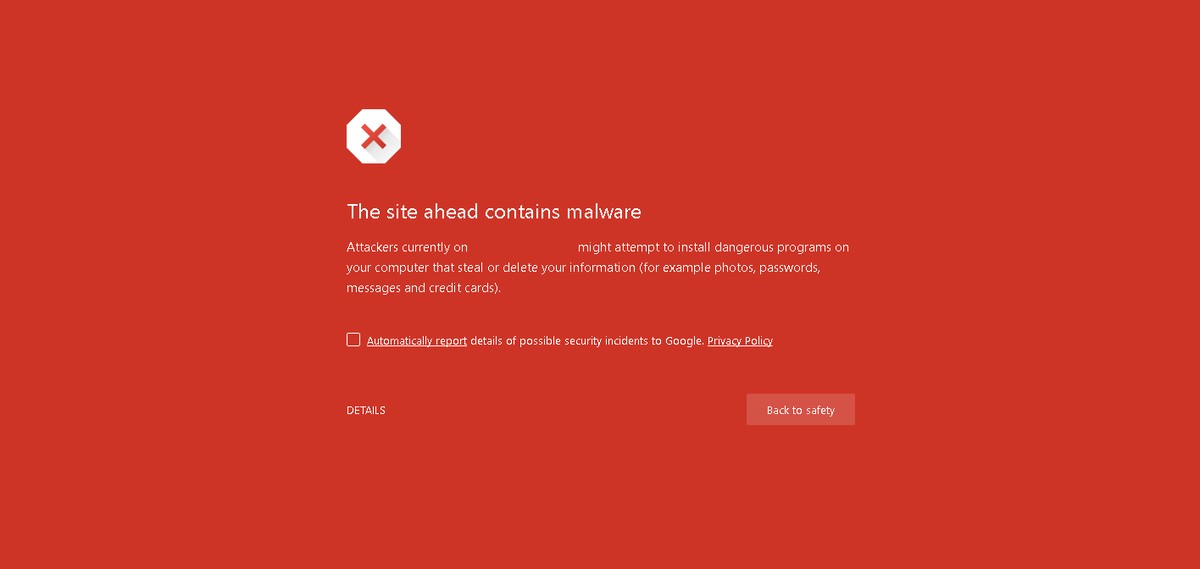It's worth listening to Google

Today, our smartphones are our constant companions. They're our connection to the world, our entertainment, and sometimes, our lifelines. But lurking in the virtual landscape are threats that we often underestimate – pop-up messages.
Google, the tech giant that powers the Android ecosystem, is sounding the alarm over five critical pop-up messages that should never be ignored. These seemingly harmless notifications can be your first line of defense against potential online threats and you should never ignore them.

Do not ignore Google's warnings
Google highlights the perils of "unsafe" sites and reveals the five critical warnings that might pop up on your Android phone's Google Chrome browser, with the same caution applying to your computer.
The search giant explains, "You'll see a warning if the content you're trying to see is dangerous or deceptive".
Here are the five crucial warnings you should give an ear to:
- The site ahead contains malware: This warning signifies that the website you're about to visit might attempt to install malicious software, commonly known as malware, on your device
- Deceptive site ahead: This warning indicates that the website you're trying to access may be a phishing site
- Suspicious site: If you encounter this warning, it means that the website you intend to visit raises suspicions and may not be safe
- The site ahead contains harmful programs: This warning is a sign that the website you're trying to access might try to trick you into installing programs that can cause issues while browsing online
- This page is trying to load scripts from unauthenticated sources: When you see this warning, it means the site you're attempting to visit isn't secure as loading scripts from unauthenticated sources can expose your device to security vulnerabilities
Google emphasizes that it automatically activates phishing and malware detection by default. If you encounter any of these five warnings, it's strongly recommended not to proceed to the website.
Read also: Microsoft Security Copilot opens for early access.
What if Google fails to detect them?
If Google's built-in security measures fail to detect potentially harmful sites, or if you want to take additional steps to protect yourself online, there are several actions you can take to enhance your digital security.
First and foremost, consider using reputable antivirus and anti-malware software. Installing and regularly updating these programs can provide an additional layer of defense by identifying and removing malicious software that may not trigger browser warnings. Keeping your operating system, web browsers, and software applications up to date is also essential. Developers release updates to patch security vulnerabilities, so ensuring your software is current is crucial.
Another measure to consider is the use of a Virtual Private Network (VPN). A VPN can encrypt your internet connection, making it more challenging for hackers to intercept your data. It also allows you to browse more anonymously, safeguarding your privacy.

Be cautious when dealing with email links, particularly those from unknown or suspicious sources. Phishing emails are a common tactic used by cybercriminals to trick users into visiting malicious sites or downloading malware. Enabling two-factor authentication (2FA) whenever possible is a wise move. 2FA adds an extra layer of security by requiring a secondary form of verification, such as a one-time code sent to your mobile device.
Strong and unique passwords are also essential for your online accounts. Creating complex passwords for different sites can prevent unauthorized access. Consider using a password manager to keep track of these passwords securely. It's also essential to educate yourself about common signs of phishing, such as misspelled URLs, generic email addresses, and requests for sensitive information. Being aware of these red flags is a powerful defense.
If you come across a suspicious website that you believe is malicious, and Google's warning system hasn't flagged it, consider reporting it to Google or your browser's security team.
Your vigilance and the practice of safe online habits are crucial for your and everyone's safety on the internet so if you ever stumble upon a phishing site online, you may report it to Google using the link here.
Advertisement



















Most of the time, websites listed as “suspicious” or “contains malware” tend to be false positives. I’ve had many webcomics and podcasts hit with these dubious flags for no reason whatsoever.
So no, maybe we SHOULDN’T listen to the billion-dollar corporation that doesn’t want us visiting these competing sites.